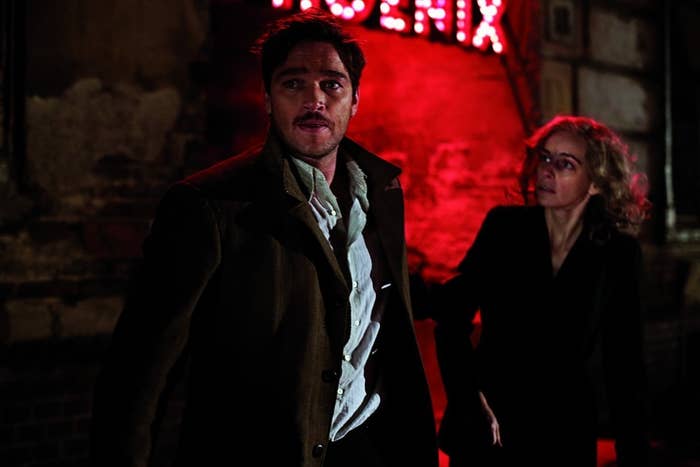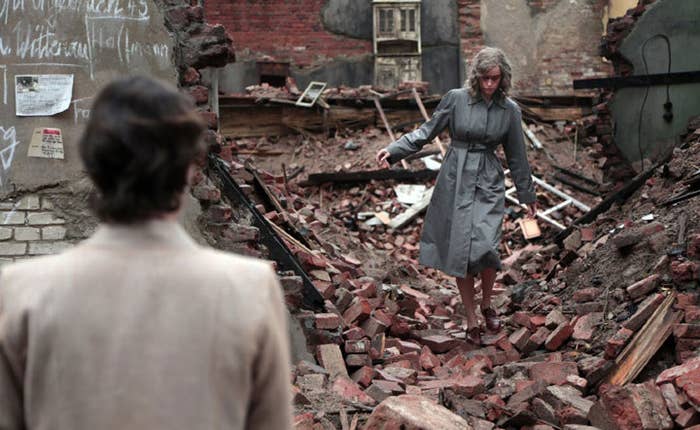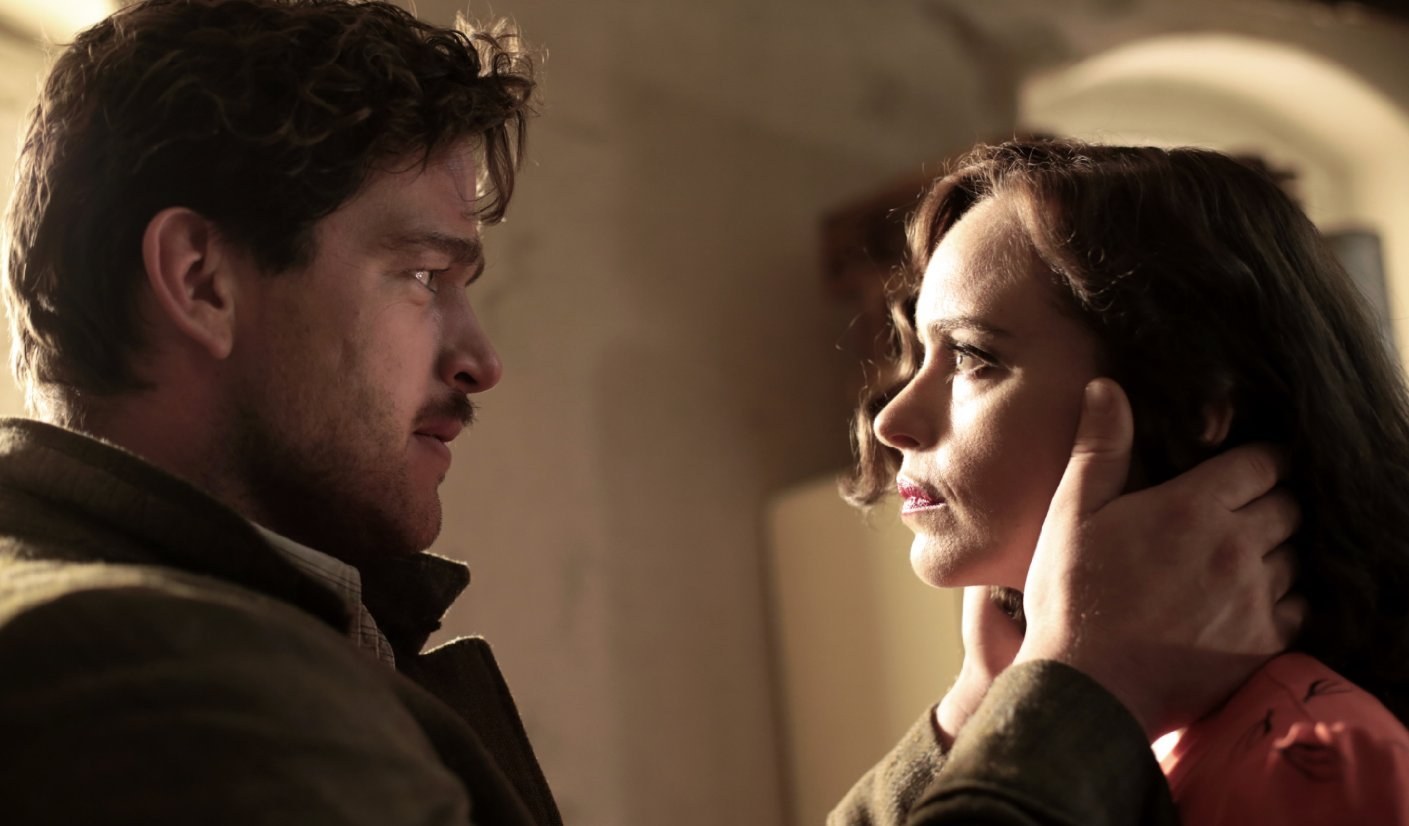
Nina Hoss plays a woman who comes back from the dead in all senses but the literal one in Phoenix, the crushingly good new movie from German director Christian Petzold. It's the kind of performance that makes you appreciate the turmoil of emotions that can be conveyed in a look. Phoenix is set in the immediate aftermath of World War II, in bombed-out Berlin, where Hoss's character, Nelly Lenz, was a singer married to a pianist before the fact that she's also a Jew began to supersede any other aspect of her identity. Nelly survived Auschwitz by taking a bullet to the face. The doctor who puts her back together notes that she was "lucky": "They thought you were dead," he observes.
She is, in fact, shiveringly alive, and newly rich thanks to her entire family being killed. But she might as well be a ghost in her own life, a bandaged, fragile figure returning to the city that was once her home. The film is a spooky, all-consuming portrait of trauma. Nelly appears hollowed out by what has happened to her and what she's seen, her eyes huge and shocked in her slowly healing face. She's been "reconstructed" — the doctor's word, while her friend Lene (Nina Kunzendorf) suggests "re-creation" instead — but she no longer looks exactly like the woman she was, though how much of that is due to the surgery and how much is due to the horrors she's been through is an open question.

Lene nudges Nelly toward a fresh start in Haifa, but Nelly wants only to go back and somehow return to the person she was before the war ripped everything open. Phoenix reveals itself to be a riff on Vertigo, in which Jimmy Stewart becomes so obsessed with a woman he lost that he tries to remake her in a stranger he sees on the street. Nelly, shaky as a foal, seeks out Johnny (Ronald Zehrfeld), her German husband, whom she hasn't seen since she was arrested and taken to the camps. She finds him busing tables in a nightclub, but he doesn't recognize her, a realization that blooms on her face like the memory of pain after weeks of numbness. She comes back anyway, and the second time he approaches her — not because he knows who she is, but because he thinks she looks enough like the wife he believes dead to pass for her, and he wants to collect Nelly's inheritance.
It's a premise that requires a suspension of disbelief, though its outlandishness fits in with the overall strangeness that is the return to normalcy after one of history's worst recorded atrocities. Johnny doesn't want to think of Nelly — whom he helped hide but, it becomes clear, also betrayed — surviving, just as he knows the old friends he's trying to fool will want her back as they remember her, not as a shattered returnee. He doesn't see her because he chooses not to, because it's easier for him and the others she used to know to attempt to smooth over what happened, to look away. He coaches her into dressing and walking and writing like his wife once did, and she clings to his lessons with a longing that's devastating to witness, so grateful that, as she says to an anguished Lene, "he's made me back into Nelly again."

Phoenix, Hoss's fifth theatrical film with Petzold, channels the unspeakable through the more familiar and domestic — Nelly frequently comes across as a battered wife trying to convince herself her abusive husband really loves her. "Did he give you the black eyes?" the girls at the nightclub taunt when she asks them if they know a Johnny, though the bruises are from the surgery she's still recovering from. He's never laid hands on her, but his betrayal was far more resounding, and yet Nelly trembles with her cravings to forgive and forget, to wrap herself in the comforting concept of letting bygones be bygones, even as the facts keep reasserting themselves like reality intruding into a dream. She's a haunting testament to how seductive it can be to ignore one's own victimization in order to try to restore what's been lost — until what's lost dissipates forever, and all that's left is the terrible truth.
